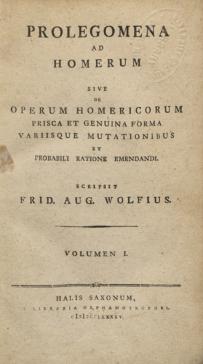This project examines the changing function and status of philology in German-speaking lands during the eighteenth and early nineteenth Centuries. It adopts a three-pronged approach that traces the institutional status of philology as well as its function and the specifics of philological practice.
By being sensitive to the location of philology within the university and its function, this project charts its transformation as it ceased to be a handmaiden of theology and came to be re-articulated as an independent mode of knowledge production. This highlights the degree to which philology developed due to numerous processes that were neither mutually exclusive nor intentionally collaborative.
By focusing on the specifics of philological practice, this project explores the ways in which the cultural and intellectual function of philology was in flux. It thus highlights the variety of eighteenth-century philological projects while also emphasizing their common practices. This project asks if philology was first and foremost a method and a shared set of tools rather than a discipline in the making.

